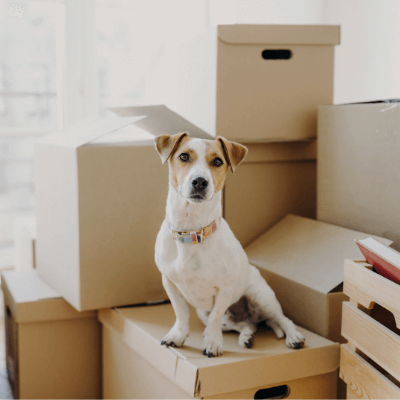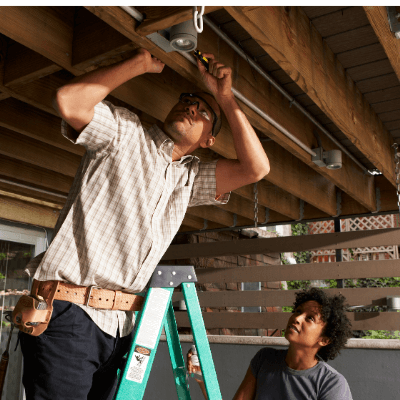Your practical guide to renting a home
- Have your paperwork ready before your property search
- Discover your rights as a renter in your state
- Consider contents insurance to cover your valuables.
When you set out to rent a property, it helps to understand the process, along with your rights and responsibilities once you’ve found a place to call home.
How to choose a rental property
Finding a new home is an exciting time. Before you start, it can be a good idea to have a firm budget in mind. Then put together a list of your must-haves, including the area, number of bedrooms, parking and transport options, and anything else that’s important to you.
How to secure your dream home
Competition for rentals can be fierce. And the more information you provide upfront, the less work an agent needs to do – which might put you at the top of the list.
Get references from former real estate agents and a personal referee like your boss. Include payslips and photo ID. Then present the paperwork in a folder to help your application stand out.
What to consider before signing a lease

A lease is a legal agreement, so have a good read through and note any special inclusions. If you breach any conditions, a landlord has a right to evict you.
Think about how long you’d like to stay in this property at a minimum. If it’s long-term you’re after, consider a 12-month lease.
What about pets?
Laws have relaxed on allowing pets in rentals. While a landlord still has the option to stipulate no pets in a lease, you have reasonable grounds to put forward your case1.
If you think owning a pet might put you at a disadvantage, you could consider speaking to the real estate agent and offer to pay an extra bond.
Related article: Does renters insurance cover that? 10 FAQs answered
How does a rental bond work?
Generally, a bond of four weeks’ rent is required upfront to cover unpaid rent or damage to the property2.
The money is returned to you when you move out3, unless:
- you owe rent or money for water bills
- you’ve broken the lease early
- the property is dirty or damaged
- locks need changing because keys aren’t returned.
The condition report is an agent’s appraisal of the condition of the property, listing any damage and the general state of the home. Fill out the report as soon as you move in and return it to the agent as soon as possible4. This can play a big part in getting your bond back. If you want to be extra cautious, you could take photos of any pre-existing damage.
What rights do you have as a renter?
Can a landlord visit without your permission? Can you sublet? Can you paint the walls? To learn about tenants’ rights in your area, read the information related to your state below.
NSW
The Tenants’ Union of NSW has put together the Tenants' rights manual: a practical guide to renting in NSW, which covers everything from starting a tenancy to Tribunal hearings.
VIC
Renting a home: a guide for tenants covers a tenant’s rights and responsibilities for renting a home in Victoria.
QLD
For information on renting a home in Queensland, check out the Pocket guide for tenants – houses and units, which covers all your rights and responsibilities.
SA
To learn all about renting in South Australia, visit the SA Housing Authority’s renting and letting website.
WA
For your rights and responsibilities as a tenant in WA, see Renting a home in Western Australia > a tenant’s guide.
ACT
If you’re planning on renting a home in the ACT, The Renting Book has all the information you need.
NT
See A Guide to Renting in the Northern Territory for details on your rights and responsibilities as a tenant in the Northern Territory.
TAS
If you’re on the Apple Isle, head to the Tasmanian Government website for information on renting in Tasmania.
Who’s responsible for repairs?
Your landlord or agent needs to keep the property in a reasonable condition. Tenants are responsible for minor maintenance, including replacing light bulbs and gardening5.
If you need something repaired, send your request to your landlord or agent in writing. Don’t stop paying rent as this could put you in breach of your lease agreement5.
 If you need an urgent repair, contact your landlord or agent immediately.
If you need an urgent repair, contact your landlord or agent immediately.
Urgent repairs could include:
- a burst water service
- a blocked or broken toilet
- a serious roof leak
- a gas leak
- an electrical fault
- flooding or serious flood damage
- serious storm or fire damage
- a failure or breakdown of the gas, electricity or water supply
- a failure or breakdown of the hot water service
- a failure or breakdown of the stove or oven
- a failure or breakdown of a heater or air conditioner
- any fault or damage that makes the property unsafe.
If your belongings are damaged, you could potentially claim through contents insurance.
Related article: Six great unknown things about renters insurance
What insurance do you need?
When it comes to your home, damage, accidents and thefts can happen.
QBE Contents Insurance covers you for things like:
- fire
- theft and vandalism
- flood, storm and water damage
- temporary accommodation
- legal liability.
To insure valuable items outside the home6 such as an engagement ring, mobile phone or laptop, you can add portable contents insurance.
To estimate the replacement value of your belongings, try this online calculator.
What happens at the end of your lease?
If you want to move out, you’ll need to give your landlord or agent notice. The minimum notice period depends on where you live. Visit your state or territory government’s website for up-to-date information.
When you move out, you need to leave the property in the same condition as when you moved in, apart from fair wear and tear. You’ll need to do a thorough clean and potentially get the carpets cleaned, particularly if you have pets.
The landlord or agent will do a final inspection, referring to the original condition report. If there’s no damage and it’s clean, you should get your bond back in full, less any rent you may owe.
If you want to stay in the property, it can be a good idea to sign a new lease for long-term certainty.
Learn more about QBE Contents Insurance for renters
1 https://kb.rspca.org.au/knowledge-base/can-i-have-a-pet-while-renting-or-living-in-a-strata-property/
2 https://moneysmart.gov.au/student-life-and-money/rental-bonds-and-leases
3 https://www.nsw.gov.au/life-events/living-nsw/renting-a-property-nsw
4 https://www.nsw.gov.au/sites/default/files/noindex/2024-01/residential-tenancy-condition-report.pdf
5 https://www.fairtrading.nsw.gov.au/housing-and-property/renting/during-a-tenancy/repairs,-maintenance-and-damage
6 https://www.qbe.com/au/home-insurance/contents-insurance









